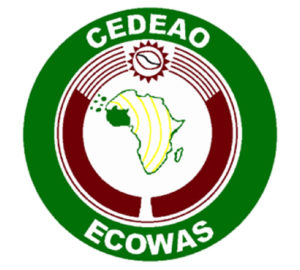Liberia refugees urge Ghana government to reduce ECOWAS Card charges
 Migrants and refugees at the Gomoa Buduburam Camp in the Central Region have appealed to the Government to reduce fees charged for the acquisition of the ECOWAS Card to make it affordable.
Migrants and refugees at the Gomoa Buduburam Camp in the Central Region have appealed to the Government to reduce fees charged for the acquisition of the ECOWAS Card to make it affordable.
They said the current GH¢150 being charged was high and they could not afford it, because their resident permits did not allow them to work in Ghana.
The migrants said they resided at the Camp doing nothing and called on the Ghana Refugee Board and the Ghana Immigration Service to change their status so they could work and live decently.
This came to light when the Migration Advocacy Centre (MAC) Ghana, an NGO, organised a dialogue for migrants and refugees at the Camp on Thursday.
The migrants also appealed to the Ghana Refuge Board to revisit the issue of those that were refused asylum, based on their stories, to enable them to regularise their documents and alleviate their current predicaments.
More than 60 participants mainly refugees from Liberia, Sierra Leone, Niger, Togo, Cote d’Ivoire, and Burkina Faso took part in the dialogue.
There were also representatives from the Gomoa Traditional Council, the Gomoa East District Assembly, Ghana National Fire Service, Ghana Immigration Service and the Ghana Police Service.
The dialogue forms part of the Migration for Development and Equality (MIDEQ) Work Package 7 Project on: “Strengthening Migrant Solidarity Building Initiative” through working with MAC Ghana.
It is a one-year project being hosted by the University of Ghana, Legon and the University of Cape Town, South Africa, in collaboration with MAC Ghana to build the capacity of partners, including migrant groups, to address issues like promoting migrants’ access to livelihoods, services and protection of their rights.
Mr Festus Owuo, the Programme Co-Lead at MAC, said the project was expected to improve the lives of migrants, their families and the community in which they lived.
“Further, it is envisaged that the project will help challenge the negative perceptions of south-south migration and turn it into positive narratives as well as highlight its positive potentials of reducing inequalities and promoting development,” he said.
Mr Owuo said to achieve the project goals, two community dialogues on “Building Social Cohesion” among West African migrants and locals of diverse categories were being organised at Gomoa Buduburam and in Accra, which were effective approaches to carry out the interventions.
Mr Tetteh Padi, the Chief Executive Officer, Ghana Refugee Board, commended the host communities and the migrants for living peacefully for the past 33 years, which made Ghana one of good examples of hosting migrants.
He said the contributions of migrants to the development of host countries could not be over emphasized and urged both host communities and the migrants to continue to live in harmony and appealed to those yet to regularise their stay to do so.
Responding to the ECOWAS Card charges, Mr Tetteh said he would disccuss with the appropriate authorities to see the way forward.
Dr Frank Ayisi, an Advocate for MAC Ghana, said peaceful co-existence was a catalyst to development and called for the maintenance of peace at all levels.
“One cannot overlook the Buduburam Camp, if one wants to understand peaceful co-existence…30 plus years and there was no conflict between migrants and host communities calls for commendation.”
Touching on the African Union Day, he urged all Africans to embrace the vision of the forefathers of a United Africa to promote growth, stability and development.
Source: GNA
